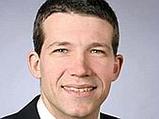
Focus Region: Greece
Category: Entrepreneurship support
Konstantina Zoehrer is a young, passionate entrepreneur whose mission it is to rebuild emerging ecosystems, like Greece, by fostering social change. She is a co-founder of the social enterprise Loft2work, where she manages operations. Loft2work is based on three pillars: commercial, hybrid and social. The commercial part is working closely with companies, on Greek and international level, on issues regarding innovation and collaborative structures. Loft2work’s hybrid part develops social innovation projects in collaboration with other companies as organizations and its social (or non-profit) part, is its community coworking space, where students, professionals and aspiring and early-stage entrepreneurs get besides a space to work from also supportive services. All three parts are based on research and implementation.
The young social enterprise made break-even within one year of operations and works on its expansion through synergies on national and international level in order to support Greece’s emerging market of social and creative economy.
Konstantina is a also member of Sandbox, a global community of hand-selected young achievers and innovators, and initiated Startup Live Athens, under the umbrella of Starteurope, which supports and fosters entrepreneurship in Europe.
Currently she is working on a research on how informal structures and communities contribute to the socioeconomic development of several, less privileged areas.
No, there are no entrepreneurs in my family. I remember that I questioned the frameworks given and wanted to create something useful and meaningful whether it would be within the framework of a company or inside society. My studies in political science and history are not the expected background of an enterprising individual. Not to forget to mention that I changed jobs quite often. Yet, I have incorporated what I studied in my daily routing at work. Whether it is social/ human sciences or a social enterprise, what I do and how I create is human-centered.
What made you become so interested in social entrepreneurship? What role did the economic environment in Greece play in this development?
My background is in social and political sciences and I tried to find a way to apply the knowledge I gathered through university and working for the communications industry into a sustainable model providing solutions with social value. Working with social technologies was a way to stumble upon entrepreneurship, mostly in the area of technology and discovered what I was missing. Technology is a great tool to develop solutions but it is not a solution on its own most of the times. Not all societies in the world have access to what the developed world considers as guaranteed.
The economic environment in Greece was a factor to see how to find a way to solve problems that seemed solved, to approach them differently, more embedded in the socioeconomic and cultural context rather than just applying practices from other countries without considering culture. Greece, is showcasing Europe’s weaknesses of uniting its cultural mosaic with its social and economic welfare.
I came to Greece long time before the “so-called” crisis, I worked here years before, I studied here and I was about to leave the country, as so many other young people my age. It was not the crisis that made me stay, but the challenge and the incredible amount of untapped talent, its social and cultural capital.
You are involved in a variety of activities such as Loft2Work, Startup Live Athens, as well as some research and writing. Can you tell us more about these activities (origin, purpose, activities, goals, future directions) and what you what you want to achieve?
To begin with, I honestly believe that you never stop learning. Startup Live Athens came to life because the team behind it wanted to connect the Greek entrepreneurial community with Europe and to support it through its network. The initiative brought to Greece, in summer 2011, is based on three-day entrepreneurial education program, someone could call it a fast accelerator program, and a vivid community and network around Europe. It was also the point to challenge myself and set into reality what I was talking about but afraid to show to a wider range of people. The fact that I initiated it, does not mean that I will lead it forever. I believe that it is far more than just another startup event, it filled a gap in the field of entrepreneurship education and it will continue with one way or another, whether as Startup Live Athens or as the point of reference for the next generation of initiatives.
As a team, we shared responsibilities and rotation leadership is something we believe in. Recently I decided to let go and let someone else take the lead. One of my mentors told me that leaving something you created when it has success point, when it is at a pick, shows more responsibility rather leaving it when it has reached a crisis point. It was not an easy decision, but I had to do what Startup Live Athens was teaching – Walking the talk and working on my social venture. It was my turn to prioritize.
Loft2work is not only the social enterprise I am part of, but also the crossroads of our team. Sophia, with her intense research and business background; Andreas coming having a strong hospitality background and being into music and arts; myself with communication and informal structures and creativity. It is where we create together and this is what Loft2work stands for: collaboration, research, social innovation and implementation, culture. We managed to reach break-even within one year, while we changed our business model and shaped it into what we had envisioned. In September 2012, we expanded to another city with an affiliate space, Loft2work Thessaloniki, which is addressing the needs of creative economy of Thessaloniki and engaging also the aspiring technology sector. During last summer we developed our first social research regarding the area of Kerameikos, which is one of the less privileged areas in the center of Athens, aiming to implement social projects that will support the areas developed based on social issues raised from the in-depth interviews. We are working on the third space, which will be on the island of Crete. Currently, we are developing three new projects that address the areas of informal education and health.
As said in the beginning, writing, research, and my involvement at other initiatives, are part of my learning journey and an important part of my personal and professional development.
Which of these pay your rent and which of these are volunteering projects on the side?
Before Loft2work, I was working as a freelancer for communications and creative industry and in various in-house positions. Since I joined Loft2work, it is also what I do for a living and provides me with the opportunity to focus on its growth but also to assist, a couple of non-profit projects, creative groups and startups on a volunteer basis.
With Greek youth unemployment rates being among the highest across Europe, where do you see your role as an ambassador among your peers? Do you see yourself in a potential future leadership position (politically or economically) in order to define what Greece will be in the future?
I was about to leave the county as many others did and do last summer. I closed the company I had at the time based in Athens, prepared everything for my relocation to Vienna, where I was born. Paid my bills and took responsibility of legal and financial details to prepare my leave. It was not an easy decision. A friend of mine told me: “You leaving Greece? You love challenge, but more than challenge, you love this place, there is an extremely nurturing affection between you two, and you will come back.” Some days later I was asked if I could bring Startup Live to Athens, especially at that point. It was the summer when Greece was in the media with strikes and maybe the most crowded demonstration, peaceful and less peaceful ones, that I had seen during the ten years I was living there. At the same time, Sophia and Andreas, founding team of Loft2work, invited me to join me on the journey called Loft2work, operating in Greece, and literally taking more and more the direction into what the three of us had envisioned, everyone of us from a different perspective. So, I just came back from a short break. Regarding leadership, I would say that there is a lot of talk about it, and less action. There are some people that inspire, motivate with their words and/or actions, but I think that it takes a lot of social consciousness to make people believe in their actual skills and apply them in order to create. I would call it collective leadership, because our society is formed around social interaction. Meaning that everything I do is human and society-centered. I do not mind if you call it leadership, for me it is social consciousness that leads to action and a better future. In order to lead, you have also to follow sometimes, otherwise society does not make progress, but you can choose who and when you follow and take also responsibility of your decisions.
If you were a political leader of Greece right now, what would be the first thing you would change?
Engaging bottom-up rather than imposing top-down and building a bridge between both levels. It might not be easy but if you want long-term change, you have to set the solid foundations of it.
What are the biggest challenges that young entrepreneurs are currently facing in Greece? Maybe you can also talk a bit about the general environment for entrepreneurs. How does your work fit into this?
I would say that young entrepreneurs face the same difficulties all around the world, the only thing that changes are the framework.
As your generation will make up the labor market of the next years and decades, how do you and your peers try to create a sustainable and future-oriented labor market?
Changing mentalities, setting collaborative frameworks and taking responsibility. It sounds like a cliché but if you look at the world as it is today, our generation, especially those living in the so-called developed countries, is gifted with advanced tools whether from science or technology, has more access to knowledge than any generation before and has to find a way to use their skills, knowledge and tools in order push things forward (Yes, this could remind you of the famous Apple quote) for the whole world. The fact that we are young does not mean that we are not responsible of the future.
Over the last years, how has the social entrepreneurship movement evolved in Greece?
During the last years we see the social sector developing more and more, but with small steps. I would say that social entrepreneurship is not only a fancy buzz word, but a different way of making business. In Greece we see it in an early-stage, but there is huge cultural and social capital which has been untapped or not considered yet as entrepreneurial or intrapreneurial action, although it is unleashing its potential day by day and changing the business landscape with one way or another.
What would be your advice to anyone thinking about starting a company or social enterprise?
Start small. Stay human. Work hard.
If you are going after security, cooperate salaries then maybe you should think twice. Any business needs vision, passion and people. A social enterprise needs a little but more persistence.


 RSS Feed
RSS Feed
